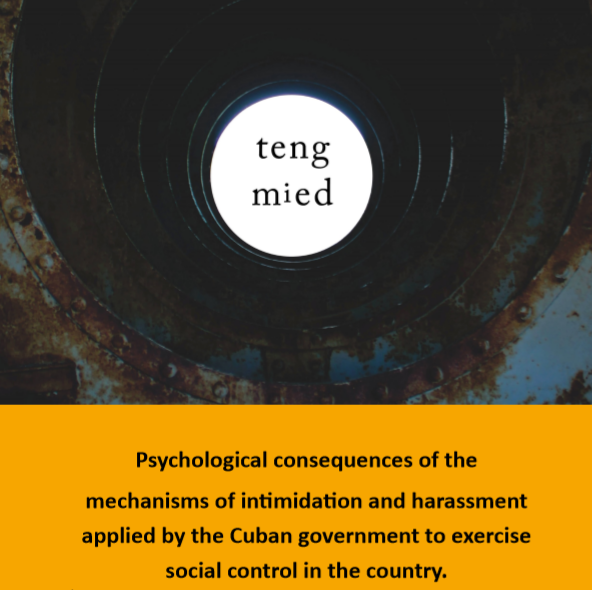PIN publishes a new report on psychological consequences of harassment in Cuba
Published: Feb 25, 2019 Reading time: 2 minutes Share: Share an articlePeople in Need (PIN) presents a qualitative report based on a compilation of personal stories entitled “Tengo Miedo”. It approaches the psychological consequences brought by the intimidation and harassment exercised by the Cuban government in order to exert social control over the country.
The objective of this initiative is to look back on and bring to light the stories of those who have suffered the effects of living under an authoritarian regime. When the repression in Cuba is analysed and exposed, the effects of everyday life are not generally considered and is often characterised by different levels of fear. For that reason, this report intends to remark the cruel, inhumane or degrading treatment present in an environment of fear which profoundly affect the wellbeing of Cubans.

In May 2018, during the third cycle of the Universal Periodic Review (UPR) at the United Nations Human Rights Council, Cuba received 339 recommendations from the international community: some with light criticism regarding the Millennium Development Goals and others more demanding, requiring the respect and protection of the Human Rights.
However, the Cuban State continued to deny any reference to the lack of freedom of association and expression, political persecution, arbitrary arrests, restrictions on freedom of movement within the national territory and abroad, lack of judicial independency, censorship, internet control and the scarce diversity in the media. At the same time, it stops independent national groups and international actors from doing their jobs when they relate to Human Rights. They also do not allow the Special Rapporteurs of the United Nations to visit the island. In fact, many of the recommendations made during the UPR relate to “facilitating the requested visits” by both the United Nations and its member States.
This report intends to identify the psychological consequences of the repressive techniques utilised by the Cuban government which intimidate those who think and act freely in order to exert social control within the country.
The specialised literature often describes these techniques as mechanisms of psychological torture. Their denomination varies according to the regulation in each country. In general terms, they refer to certain actions committed by State authorities that violate Human Rights and result in psychological damage, incur suffering to the victims, diminish their faculties and damage their moral integrity.
There is no international consensus as to at what point a specific harassment technique constitutes an act of torture in itself. Neither are defined the specific psychological consequences to each repressive technique. There are however concrete cases and individual life stories. The analysis of several Cuban stories allows the identification of specific techniques of repression and their psychological consequences to the people subjected to them.


